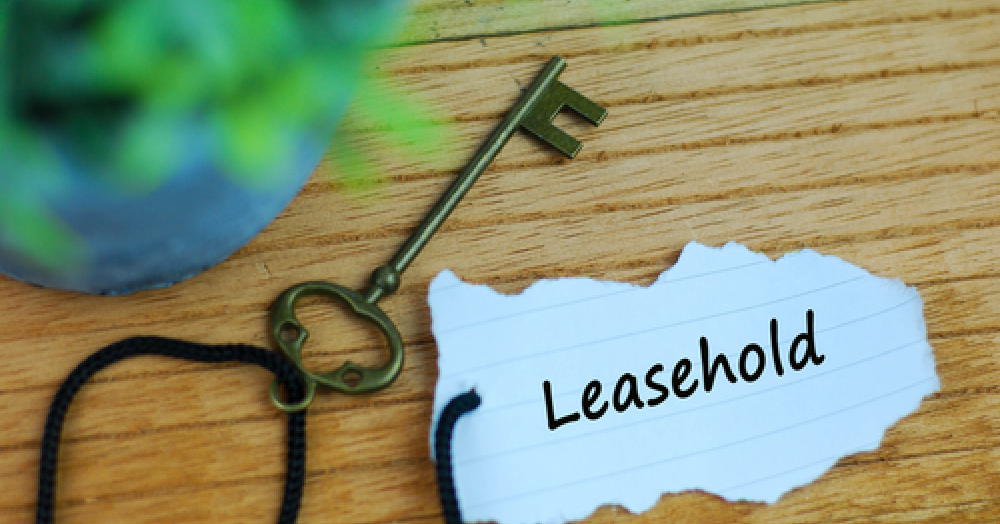Around one in five properties in the UK are leasehold and with more properties being sold as leasehold than ever before, should you buy a leasehold property?
It’s a legitimate question for someone who wants to buy a home, so let’s discuss what a leasehold property is first. With a leasehold property, the leaseholder owns the property for the length of their lease agreement but they must pay the person who owns the land – the freeholder – ground rent and other fees.
When the leasehold ends, ownership returns to the freeholder (Landlord). Although the leaseholder can extend the lease or buy the freeholder out, there are rules and regulations in regards to doing that.
Buying a freehold property means that you own the building and the land it stands on outright, in perpetuity. It is your name in the land registry as “freeholder”, owning the “title absolute”.
Should you buy a leasehold property?
The first thing to consider regarding whether or not you should buy a leasehold property is the length of the lease. Normally they are very long-term (As long as 999 years) and if this is the case, the length of the leasehold shouldn’t be seen as an issue as it will last generations. However, leases of 85 years or shorter can impact value and require caution. If the leasehold is any less than 70 years it could significantly decrease the property value when it comes to reselling.
Secondly, you should assess the obligations and rights that apply to the lease. In the case of flats, the freeholder will normally be responsible for maintaining the common parts of the building, such as the entrance hall and staircase as well as the exterior walls and roof. For houses, the freeholder could have to maintain communal grass areas or driveways. There may also be clauses to ban the leaseholder from doing major building works, owning pets or subletting.
Finally, you should consider how much the fees are and how they are calculated. This is extremely important as ground rents and other fees can be notoriously & intentionally difficult to calculate. This is designed to mislead a potential buyer into entering the transaction, only to find that the ground rent could say, double every 10 years.
So should you buy a leasehold or freehold property? Generally, freehold is more preferable than leasehold for most buyers. If you had the option to buy the same property as freehold or leasehold, you would probably want it as freehold.
However, if you don’t have the choice between the two, you should weigh up the length of the lease, benefits of the lease as per the contract, restrictions clauses, the cost of the lease now and the cost of the lease in the future.
Buying the freehold
You can ask the landlord to sell you the freehold at any time if you have the intention to buy. There are different legal steps and rules depending on whether your home is a flat or a house. If we are talking about a freehold house, leaseholders have a legal right under the Leasehold Reform Act 1967 to buy the freehold of their house if they meet certain qualifying criteria. Alternatively, it is possible to negotiate with the freeholder informally to buy the freehold by agreement.
Landlords who want to sell the freehold of a building containing flats usually have to offer the leaseholders the first chance to buy it. This is known as your right of first refusal.
If your home is a flat, you’ll need to buy a share of the freehold. Leaseholders have a legal right under the Leasehold Reform, Housing and Urban Development Act 1993 to act together to buy the freehold of their building if they meet certain qualifying criteria. This is known as collective enfranchisement. Alternatively, it is possible for leaseholders to negotiate with the freeholder informally to buy the freehold by agreement.

